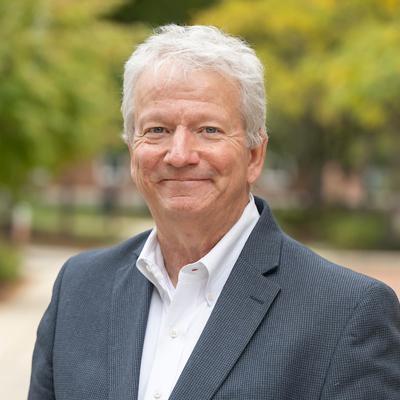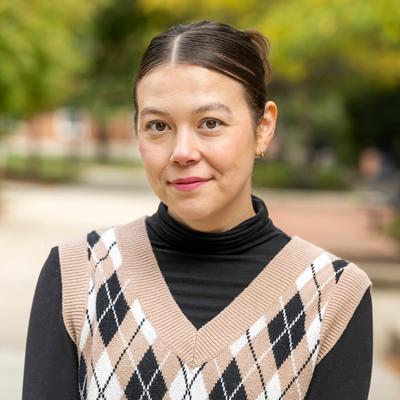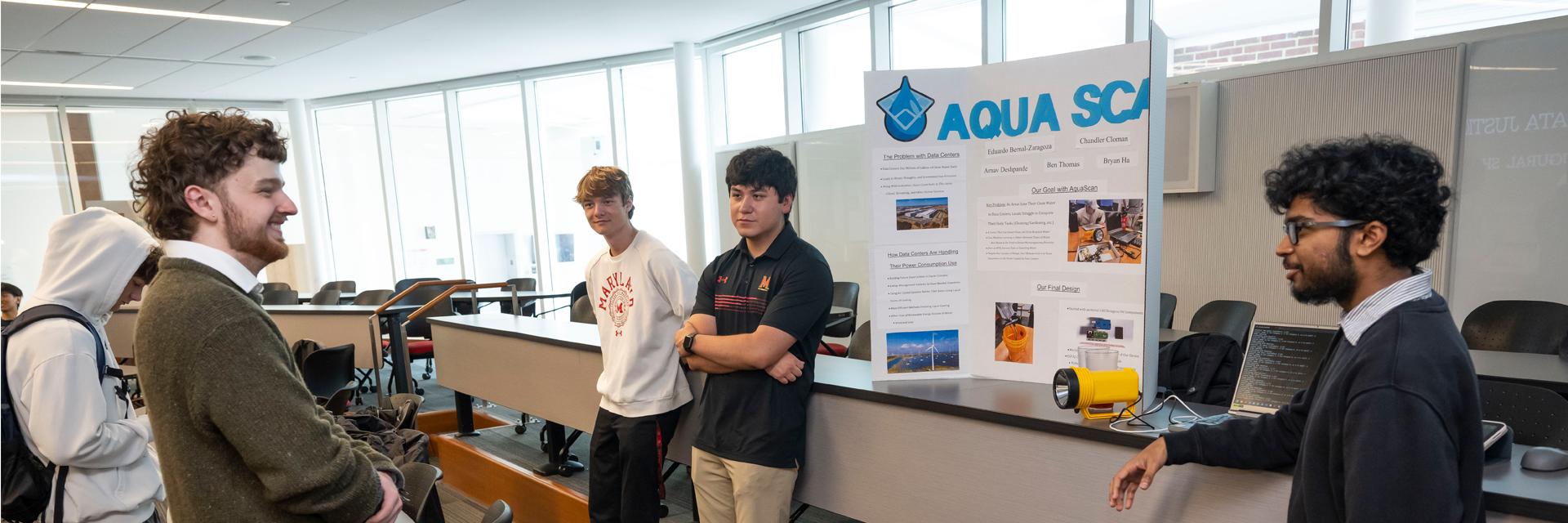Data Justice
Information, analytics and computing for social change
Introduction
Data Justice (DJ) provides students an opportunity to interrogate the biases that are built into information collection, design, and analysis. Students explore how specific values are coded into datasets, algorithms, AI-driven systems, machine learning models, and other sociotechnical systems. They gain advanced data-related skills that will serve them in a wide variety of careers that aim to make the world a better place through information.
By the conclusion of the program, students will be able to:
- Employ justice-centered approaches to equitable computer and data sciences;
- Analyze how cultural values, power, and privilege are encoded into technologies;
- Critique the sociopolitical values of data structure and algorithmic design;
- Analyze ways that computing and data science have been used as a catalyst for positive social change; and
- Develop a computing identity that intersects with personal identity factors.
DJ Scholars enters its second academic year in 2025-26. The program is sponsored by the University of Maryland’s College of Information, a top-ranked research and teaching college in the field of information science.
In the College of Information, faculty, staff, students, and partners are expanding the frontiers of how information and technology are accessed and used in a rapidly evolving world. We are combining principles of information science with cutting-edge technology to foster access to information, improve information interfaces, and expand how information is used in an evolving world.
Throughout all of our endeavors, the College of Information is committed to utilizing information and technology for good – to connect communities, empower individuals, and create opportunities.
Colloquium and Lecture Topics
- How do you use information?
- What is the info you need to change the world?
- What has produced the digital divide?
- How are digital identities different from personal identities?
- How can we achieve information justice?
Other Learning Opportunities
In addition to colloquium and supporting courses, DJ students will choose three 1-credit electives from a group of courses focused on building technical computing and data science skills. Course titles include:
- Making Twitter Bots
- Solving Puzzles and Riddles with Computation
- Comic Books and Machine Learning
- Emergent Experiences through Technology
Off-campus excursions to information-related sites, such as the Library of Congress, the National Archives, and the Agricultural Library in Beltsville, MD, will foster community and encourage examination of information in the community (in physical location, cyberspace, and institutions created for the management and best use of information).
Curriculum Overview
Data Justice is an 15-credit program that includes a required course on algorithmic bias (INST204S); a series of colloquium courses on the topics of the digital divide, digital identities, and information justice; a set of supporting courses drawn from the College of Information’s 100- and 200-level courses on relevant current issues; a set of short supporting courses focused on technical computing and data science skills; and a practicum (CPDJ240 Service Learning) in which students will undertake a project with a community partner related to data justice.
The following table represents a typical two-year curriculum, but individual schedules will vary. Details about courses and requirements can be found on the Data Justice Citation Checklist.
| SEMESTER | COURSE | CREDITS |
|---|---|---|
| Semester 1 | CPDJ 100: Colloquium I | 1 credit |
| INST204S: Designing Fair Systems (DSHS, SCIS) | 3 credits | |
| Semester 2 | CPDJ 101: Colloquium II | 1 credit |
| Semester 3 | CPDJ 200: Colloquium III | 1 credit |
| Semester 1, 2, 3, or 4 | INST 388: Maker Movement INST 388: Maker Movement INST 388: Maker Movement |
1 credit 1 credit 1 credit |
| Semester 1, 2, 3, or 4 | Supporting Course (var. Gen Ed) | 3 credits |
| Semester 4 | CPDJ 240: Service-Learning Practicum | 3 credits |
Sponsoring College
Office Address
1101 Centreville
Office Phone
TBD
Faculty


News and Notes, Etc.
Data Justice News
Researchers Solve Mystery of ‘Dinky’ Dinosaur’s Unusually Long Stride
The tiny, two-toed fossil footprints made by an unidentified dinosaur species some 100 million years ago and preserved in a slab of rock in South Korea are thought to have been made by a raptor no bigger than a modern sparrow. What stumped paleontologists was the animal’s enormous stride; the unknown raptor’s footprints had larger gaps between them than expected for such a diminutive dinosaur.“This guy is dinky—one of the smallest dinosaurs that we have fossils of,” said University of Maryland paleontologist and Science and Global Change program director Thomas R. Holtz Jr.
Fourteen Scholars Named Class of 2024 Senior Marshals
Senior Marshals are graduating seniors who have demonstrated the highest levels of scholarship, service to the campus community, extracurricular involvement, and personal growth. The University of Maryland Senior Marshals represent graduating seniors who have demonstrated the highest levels of scholarship, service to the campus community, extracurricular involvement, and personal growth.
Two Scholars Named 2024 Patty Grace Smith Fellows
HUNTSVILLE, Ala. - The Patti Grace Smith Fellowship recently announced the selection of 29 students to participate in its award-winning program that connects the United States’ leading aerospace companies with talented Black students.The Class of 2024 Fellows hail from 17 colleges and universities spread across 13 states and Puerto Rico. Each Fellow has earned a challenging summer aerospace internship, as well as a scholarship worth thousands of dollars, a pair of personalized mentors, and more.Two College Park Scholars were named recipients of the 2024 Fellowship:
Two More Programs Added to Scholars for 2024-25
COLLEGE PARK, MD. – College Park Scholars in Fall 2024 will add two programs to its roster of two-year living-learning experiences for academically talented students, but one will look and sound familiar.Data Justice will debut, and the University of Maryland’s CIVICUS program will relaunch with a new name: Civic Engagement for Social Good.The expansion will bring the number of Scholars programs to a record of 13 and provide 150 additional first-year students with the opportunity to begin their college journeys as members of an intellectually rich and socially vibrant Scholars community.
Philip Merrill Presidential Scholars Program Honors Top Students and Their Mentors
Outstanding graduating seniors at the University of Maryland have analyzed drought patterns, researched diabetes and tutored elementary school students in math. One plans to be an eye surgeon; another, a human rights attorney.
Scholars Celebrates Citation and Founders Circle Award Winners at Annual Ceremony
When the Citation class of 2023 entered the University of Maryland, they were already adjusting to a rapidly changing world being constantly reshaped by the Covid-19 global pandemic. One thing that didn’t change – their commitment to excellence in the classroom. All who successfully completed the requirements of their respective Scholars program received their official Scholars citation. But there were some that went above and beyond the expectations, leaving a lasting impact on the community.


